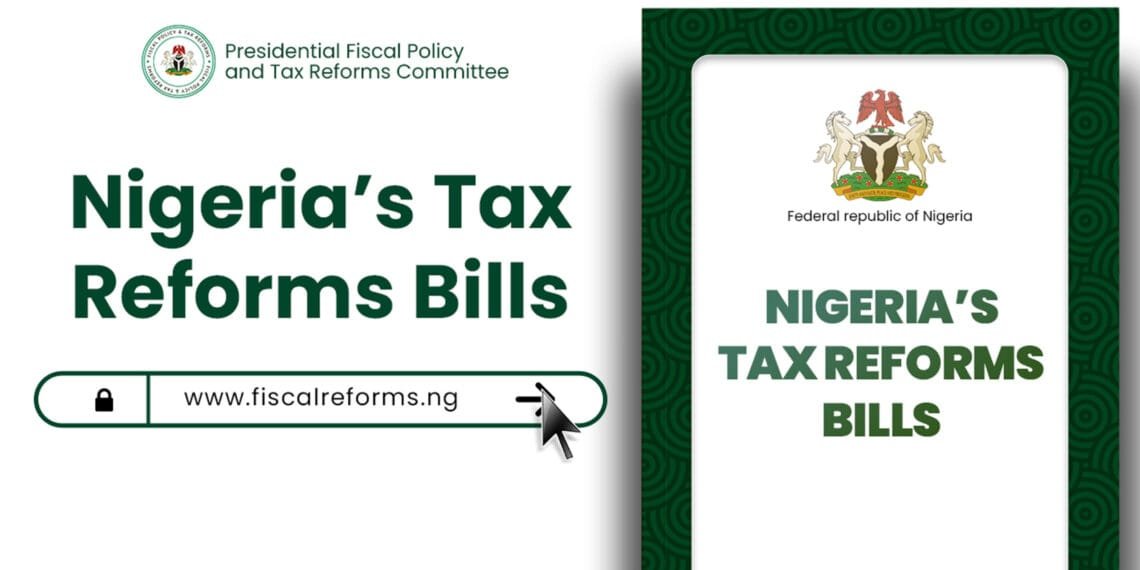Nigeria’s Tax Reform Bill: A nation dividedNorthern blocks fight for survival
Southern leaders hail bill
Obi urges for equity, efficiency
The introduction of Nigeria’s Tax Reform Bill by President Bola Tinubu has ignited a storm of debates, exposing a sharp divide between the North and South while drawing attention to the country’s delicate balance of regional equity, economic priorities, and federalism. As the nation debates the bill’s merits and implications, it becomes evident that the path to fiscal reform is fraught with political and social complexities.
The Tax Reform Bill proposes sweeping changes to Nigeria’s tax administration, including the replacement of the Federal Inland Revenue Service (FIRS) with the Nigeria Revenue Service (NRS), a unified national tax body. Among the most contentious provisions is the redistribution of Value Added Tax (VAT) based on consumption rather than the current point-of-origin model.
Proponents argue this model aligns with international standards, promising efficiency and fairness. However, opposition to the bill, particularly from Northern Nigeria, see it as skewed in favor of the South’s industrialized economy, notably Lagos.
Leading the charge against the bill is Senator Ali Ndume of Borno South, a vocal critic who has labeled the timing and structure of the reforms as “economically perilous.” His resistance reflects widespread Northern fears that the reforms could devastate their agrarian economies, which depend heavily on federal allocations derived from taxes generated in the South.
Governor Babagana Zulum of Borno State has warned that the bill, in its current form, could render many Northern states incapable of meeting basic financial obligations, including civil servant salaries. This sentiment has galvanized Northern governors, traditional leaders, and stakeholders to demand the bill’s withdrawal for further consultation.
Conversely, Southern leaders and economists hail the bill as a necessary step towards modernizing Nigeria’s fiscal framework. They argue that a consumption-based VAT distribution model encourages economic growth by rewarding states with higher commercial activities.
Lagos State, often seen as a primary beneficiary, has surprisingly voiced reservations about the sharing formula but continues to support the bill’s broader objectives. Advocates like Taiwo Oyedele, chair of the Presidential Committee on Fiscal Policy and Tax Reforms, emphasize the bill’s potential to streamline tax administration, boost revenue, and reduce multiple taxation—a perennial complaint of Nigerian businesses.
The expert community is just as polarized as the regions they hail from. Some see the reforms as a golden opportunity to increase Nigeria’s tax-to-GDP ratio while fostering transparency and accountability. Others fear the reforms will disproportionately burden less developed states and exacerbate economic inequality.
Critics like Senator Ndume also question the government’s capacity to implement the reforms effectively, citing a history of failed policies. Meanwhile, proponents argue that the bill includes safeguards, such as reduced rates for small businesses and the creation of a Tax Ombudsman to ensure fairness.
The controversy surrounding the bill is not merely economic but deeply political. Senator Ndume’s resistance is seen as a rallying cry for Northern unity, positioning him as a defender of regional interests. His dissent, however, has strained relations within the ruling All Progressives Congress (APC), where some perceive his actions as disruptive.
Southern leaders, on the other hand, accuse Northern critics of clinging to outdated revenue-sharing models that discourage economic diversification and development.
Amid the impasse, the National Assembly has paused debates on the bill, signaling a willingness to address grievances. The National Economic Council has also recommended its withdrawal for broader consultation. While this may placate critics, it raises questions about the government’s resolve to push through critical reforms in the face of resistance.
Read also: Tinubu tasks Gulf of Guinea leaders on enhancing maritime security, blue economy
Former Anambra State governor and Labour Party leader, Peter Obi, weighed in on the contentious debate, advocating for a balanced approach. Speaking at a public forum, Obi emphasized the need for tax reforms to prioritize economic fairness and transparency.
“Our tax system must reflect equity and efficiency. While I support reforms that eliminate inefficiencies, we must ensure that these changes do not deepen economic disparities or disadvantage less industrialized regions,” Obi stated.
He also called for more dialogue among stakeholders to bridge regional divides. “We cannot afford to implement policies that alienate any part of the country. Tax reform must serve as a unifying force, fostering balanced economic development,” Obi added
Nigeria’s Tax Reform Bill represents more than fiscal policy; it is a test of the country’s ability to navigate regional disparities and forge a unified economic strategy. Resolving this North-South divide requires not only political will but also an inclusive approach that addresses the unique challenges of each region.
As the debate unfolds, one thing is clear: the outcome of this reform battle will shape Nigeria’s economic and political future for years to come. Will it be a step toward progress or a retreat into the comfort of the status quo? Only time will tell.






